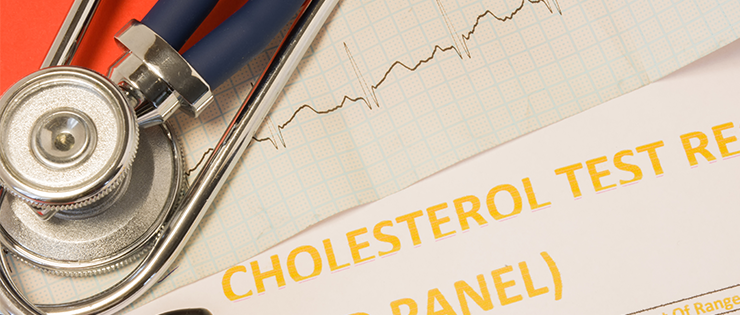
Cholesterol is one of those words we’ve all heard of and virtually never in a good light. It’s something we need our doctor to check and to avoid in our diet but past that, many people are in the dark as to what cholesterol is, if it is actually bad for you and how to make sure yours is healthy.
So let’s start with the basics. Cholesterol is not exactly a bad guy, in fact, it’s a vital substance in our bodies. Cholesterol is a small fatty molecule that is absolutely essential for life. It acts as a precursor to a number of hormones and forms the walls of the cells in our body. Cholesterol is absorbed from our gut, mostly from animal products but by far and away, most of the cholesterol we get every day is actually made by our very own cells.
When we talk about cholesterol and its relationship to disease, what we’re generally talking about is heart disease (heart attacks), strokes and peripheral vascular disease. Peripheral vascular disease is when the blood vessels to your legs or in your abdomen become blocked up with plaque. When the cholesterol in our blood floats around our blood stream, it can cause damage to our blood vessels helping to form plaques called atheroma which cause blockages when they grow too big or rupture.
There are actually several types of cholesterol and cholesterol itself is a part of the lipids of fat we find in our blood stream. When you get a blood test to check your cholesterol, what we’re actually looking at is four compounds. They are total cholesterol, triglycerides, high density lipoprotein (HDL) and low density lipoprotein (LDL). LDL cholesterol is sometimes called bad cholesterol because it has a strong ability to cause disease, while HDL cholesterol is called good cholesterol because it seems to protect against heart disease, strokes and peripheral vascular disease. Triglycerides are not a type of cholesterol but another fat in the blood but they often get checked at the same time.
Cholesterol levels, especially high LDL and triglycerides as well as low HDL cholesterol have been shown to be strongly associated with heart disease, strokes and peripheral vascular disease. Therefore, what we want to do is to keep them in safe levels. There are a number of very effective medications to do this, which save lives but there are also a number of lifestyle changes you can do which help keep your blood fats in good shape.
Here is how you can make lifestyle changes to help your body keep cholesterol levels healthy:
- Reduce your intake of saturated and trans fats – red meat, fried foods and butter
- Increase your fiber intake – in legumes, nuts, whole grains, fruit and vegetables
- Olive oil and oily fish like salmon may help your good cholesterol in moderation
- Eggs aren’t the demons they used to be for cholesterol but should also be consumed in moderation
- Exercise lowers your cholesterol and makes your blood vessels and heart much healthier.
There are a number of foods which claim to lower cholesterol such as popular spreads but it’s best to be cautious with these because some research has shown that while they lower cholesterol, they don’t necessarily prevent heart attacks and they may even promote ill effects like inflammation.
Of course, even with all this, medications may be necessary to lower cholesterol, keep your blood vessels healthy and prevent heart attacks. If you have a number of other risks for heart disease such as smoking, diabetes, a family history, a medication may be necessary to prevent major problems down the track.
Your GP is a great source of information about your cholesterol including getting yours checked.